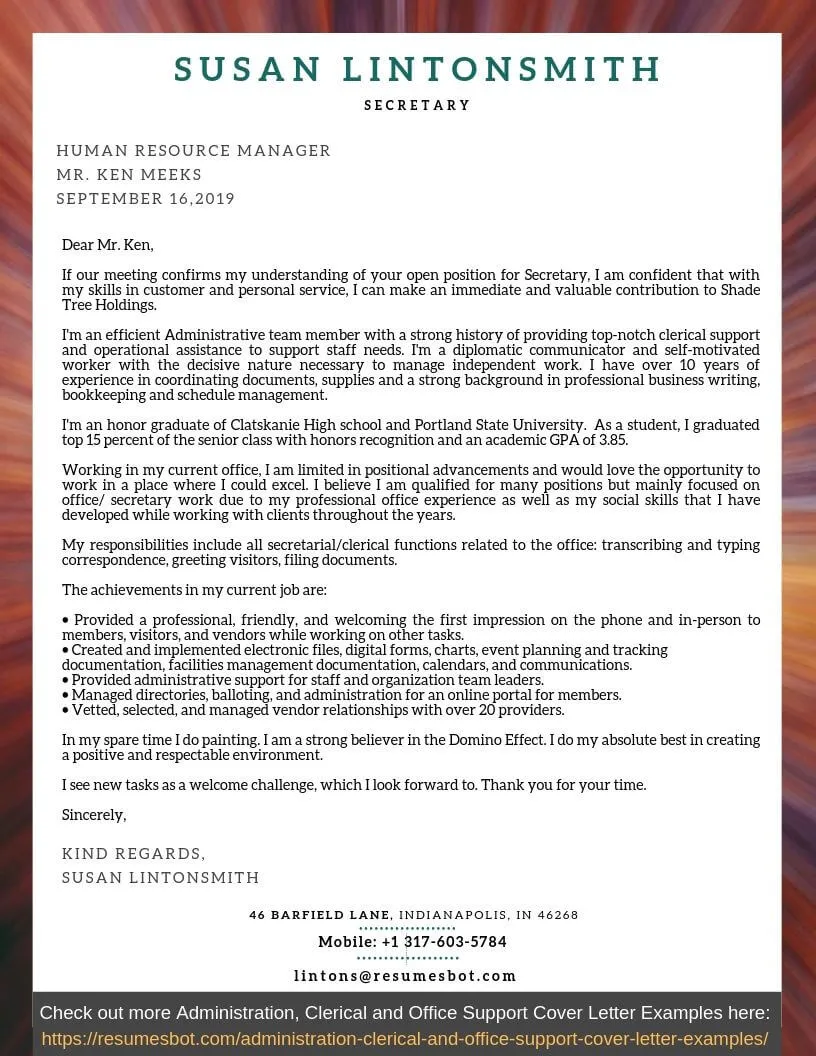Crafting a Winning School Secretary Cover Letter
Securing a school secretary position involves more than just a stellar resume; a compelling cover letter is your first opportunity to make a lasting impression. This crucial document acts as your introduction to the hiring committee, showcasing not only your qualifications but also your personality and enthusiasm. This guide provides you with all the necessary elements to craft a cover letter that will significantly increase your chances of landing an interview and ultimately, the job. We’ll delve into key strategies, from understanding the role’s core requirements to tailoring your letter for maximum impact. Remember, a well-crafted cover letter is your ticket to the next step in the hiring process.
Understanding the School Secretary Role
Key Responsibilities of a School Secretary
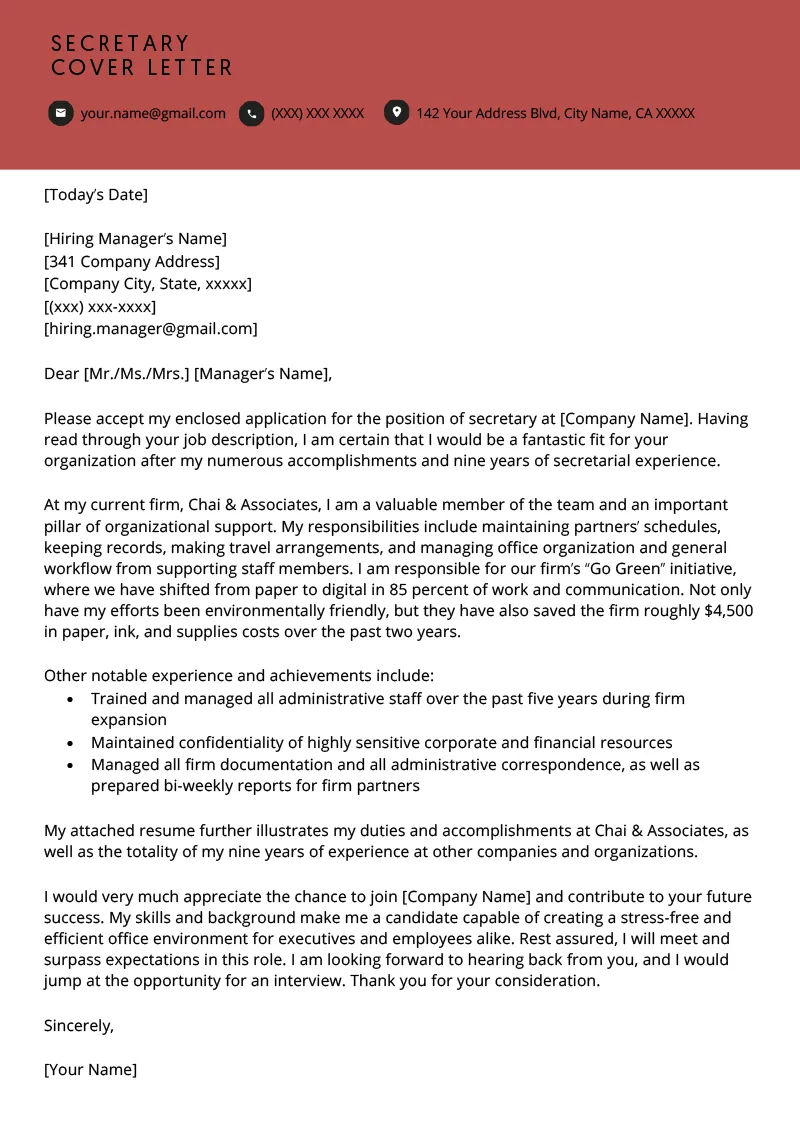
Before you begin writing, it’s essential to grasp the multifaceted nature of a school secretary’s responsibilities. A school secretary is the central hub of information and activity, often the first point of contact for parents, students, and staff. Core duties typically include managing phone calls, scheduling appointments, handling correspondence, and maintaining student records. The role also involves administrative tasks such as preparing reports, managing office supplies, and assisting with various school events. Moreover, the secretary must demonstrate exceptional organizational skills, attention to detail, and the ability to handle multiple tasks simultaneously. The responsibilities can vary slightly depending on the school’s size and specific needs.
Essential Skills for Success
To excel as a school secretary, certain skills are indispensable. Strong communication skills, both written and verbal, are vital for interacting with a diverse range of individuals. Excellent organizational abilities are crucial for managing schedules, maintaining records, and prioritizing tasks. Proficiency in computer applications such as Microsoft Office Suite (Word, Excel, Outlook) is typically required for handling documents, spreadsheets, and email communications. Furthermore, the ability to maintain confidentiality, demonstrate a professional demeanor, and possess a positive attitude are essential attributes for success in this demanding role. A background in office management, customer service, or a related field can also be beneficial.
Highlighting Your Relevant Experience
Your cover letter should effectively showcase how your past experiences align with the requirements of a school secretary position. Instead of merely listing your previous job duties, focus on the accomplishments and skills that directly relate to the role. This section is where you demonstrate your understanding of the job and your ability to perform the necessary tasks. Be specific and provide concrete examples of how you’ve successfully managed administrative tasks, communicated with others, and handled confidential information. Quantifying your achievements whenever possible—for example, mentioning how you improved office efficiency or streamlined communication processes—will make your application more compelling.
Showcasing Administrative Skills
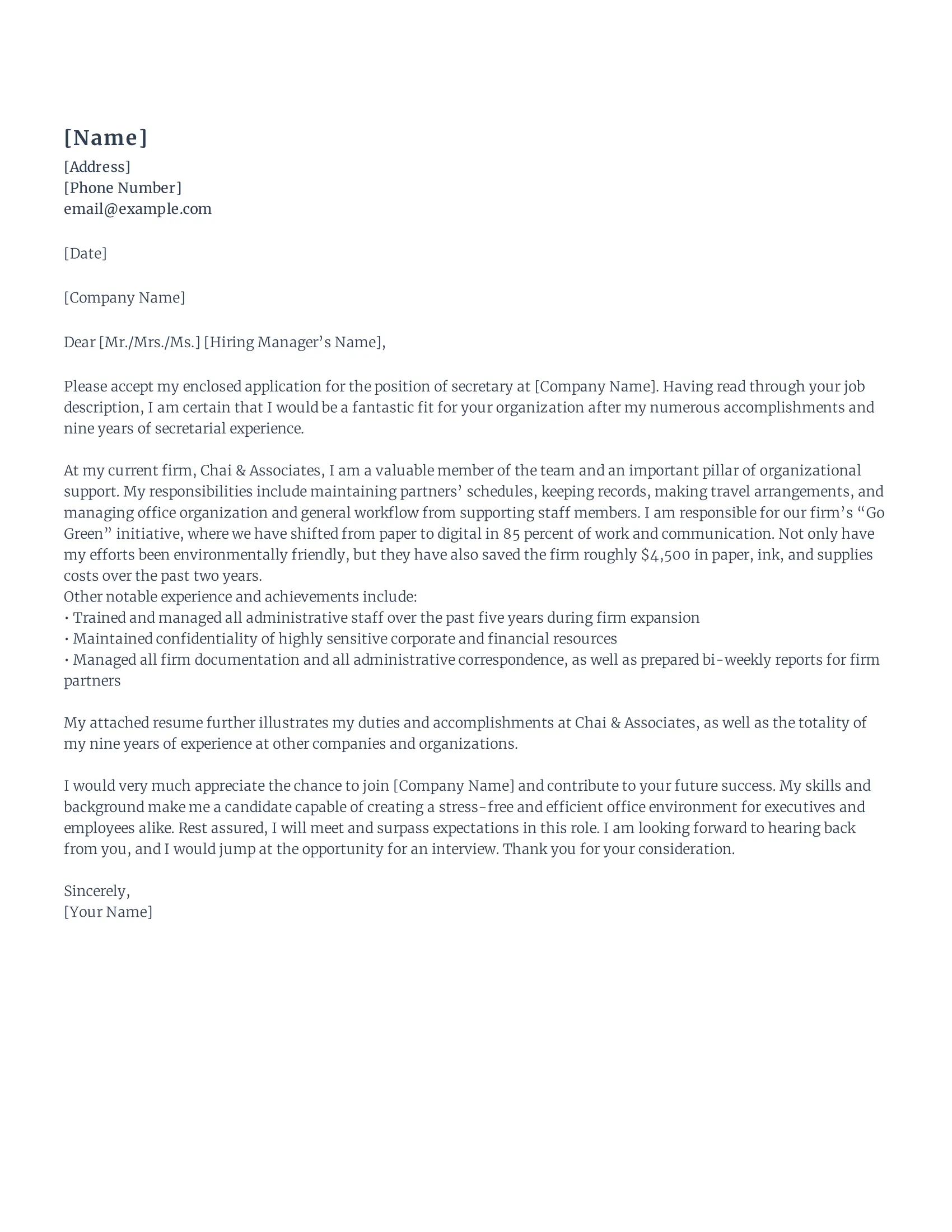
Administrative prowess is at the heart of a school secretary’s role. Highlight your proficiency in managing office operations, maintaining records, and handling correspondence. Provide concrete examples, such as streamlining filing systems, managing student databases, or preparing reports. Demonstrate your experience with scheduling, appointment setting, and managing calendars. If you have experience with any school-specific software or systems, be sure to mention them. Even seemingly small accomplishments, such as consistently meeting deadlines or improving the efficiency of an administrative process, can significantly impress potential employers. Remember to use action verbs and quantify your achievements whenever possible.
Demonstrating Excellent Communication Skills
Effective communication is paramount in this role. Highlight your abilities to communicate clearly and professionally both in writing and verbally. Mention your experience in answering phones, handling emails, and interacting with parents, students, and staff. Provide examples of how you have resolved conflicts, conveyed information effectively, or adapted your communication style to different audiences. If you have experience with multilingual communication, be sure to include this. Strong communication skills ensure that you can provide excellent customer service and maintain a positive school environment. Your ability to actively listen and understand diverse perspectives should be also be noted.
Emphasizing Experience with School Systems
While experience in a school setting is beneficial, it is not always a prerequisite. However, if you have worked in a school environment, be sure to highlight this experience. Mention any familiarity with school policies, procedures, and regulations. Detail any experience with student information systems, attendance tracking, or other school-specific software. If you have volunteered in a school, participated in parent-teacher associations, or have other relevant experience, include it. If you lack direct experience, focus on transferable skills, such as organizational abilities, communication proficiency, and your commitment to working with children and families. Show enthusiasm for supporting the educational mission of the school.
Tailoring Your Cover Letter for Impact
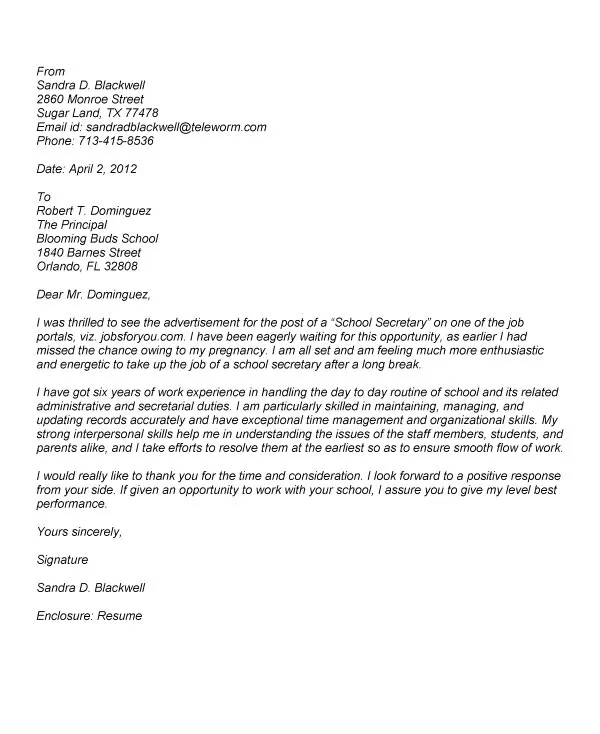
A generic cover letter is easily dismissed. To stand out, you must tailor your letter to the specific school and position. Thorough research and personalization are crucial for making a positive impression. Take the time to learn about the school’s mission, values, and community. This demonstrates your genuine interest and allows you to align your skills and experience with their specific needs. Customize your letter, ensuring that you address the hiring manager by name if possible and directly reference the job description’s requirements. This approach will show that you have taken the time to understand the role and are not simply sending out a mass-produced application.
Researching the School and Its Needs
Before writing your cover letter, conduct thorough research on the school. Visit the school’s website to learn about its mission, values, and programs. Read about the school’s history and community involvement. If possible, review recent news articles or social media posts about the school. This research allows you to tailor your letter to address the school’s specific needs and demonstrate your genuine interest. Identify any challenges or goals that the school is currently facing. Addressing these in your letter, and explaining how your skills can contribute to solutions, will set you apart from other applicants.
Customizing Your Letter for the Specific Position
Review the job description carefully and highlight the skills and experiences that directly match the requirements. Use the same keywords and phrases from the job description in your cover letter to show that you are a good fit. Address the specific responsibilities listed in the description. Be sure to mention any specific software, systems, or skills that the school requires. Tailoring your letter indicates that you understand the position’s requirements and have taken the time to demonstrate your suitability. Customize your letter to show that you are the best candidate and how you can contribute to the school.
Using Keywords Effectively
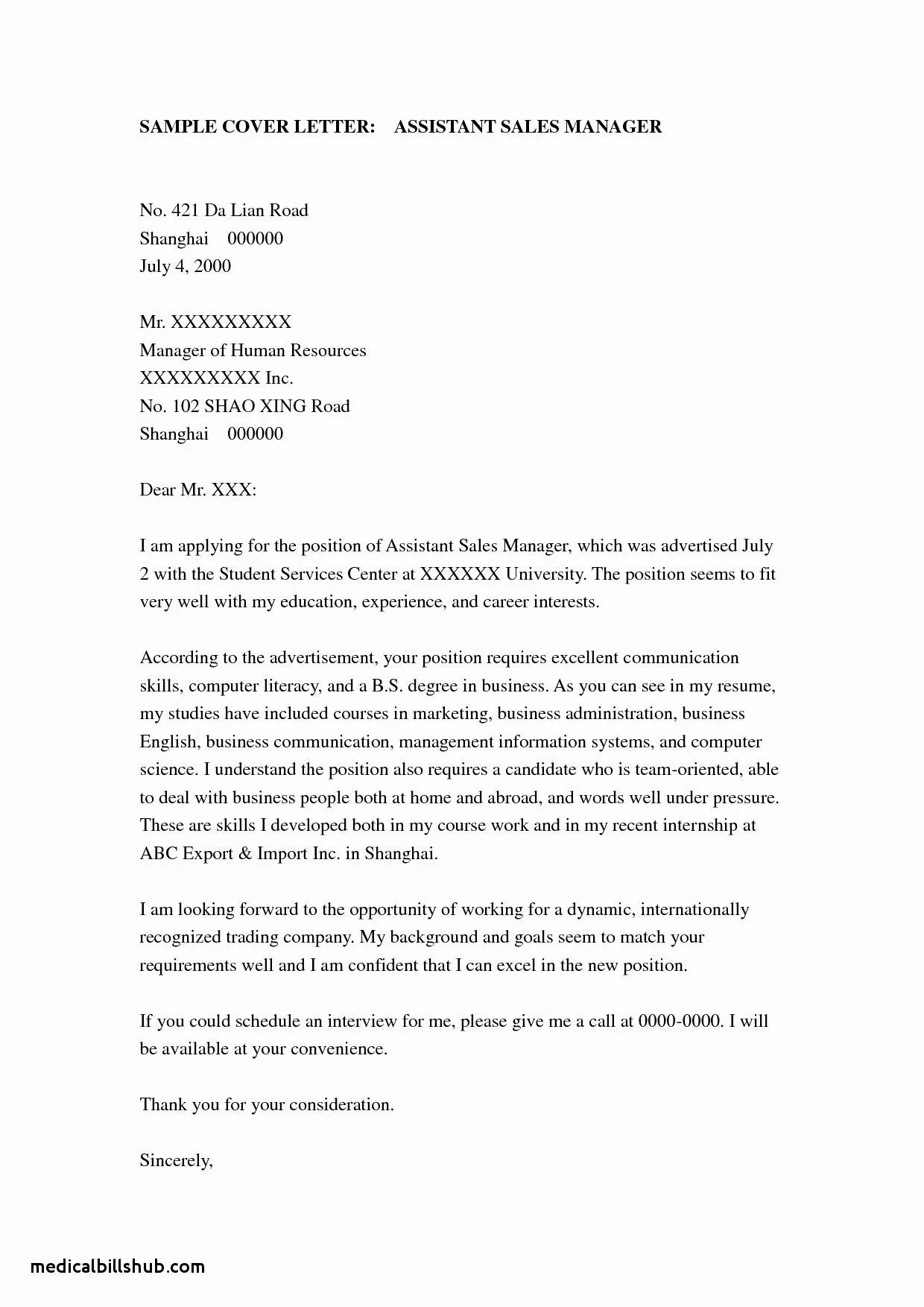
To increase your chances of getting noticed, strategically incorporate keywords from the job description into your cover letter. This practice is especially important if the school uses applicant tracking systems (ATS) to screen applications. Review the job description and identify the key skills, qualifications, and requirements. Weave these keywords naturally into your cover letter, ensuring they flow seamlessly within your sentences. Avoid keyword stuffing, as this can make your letter appear unnatural and unprofessional. Use keywords to highlight your relevant skills and experience, demonstrating that you meet the criteria for the position. Be sure to use keywords in your summary, skills section, and body paragraphs.
Structuring Your Cover Letter
A well-structured cover letter is easier to read and increases your chances of making a strong impression. Following a clear and organized format helps to present your qualifications and enthusiasm concisely. The structure generally includes a header with your contact information, a formal salutation, an engaging opening paragraph, several body paragraphs, and a compelling closing. Each section plays a vital role in conveying your message and demonstrating your suitability for the position. Ensure your letter has a logical flow, making it simple for the reader to follow your thoughts and understand your qualifications. Use proper grammar, spelling, and punctuation.
The Perfect Header and Salutation
Your header should include your name, address, phone number, and email address. Place this information at the top of the page, either aligned left or centered. Always use a professional-looking email address. Below your header, include the date and the recipient’s name and title. If possible, address your letter to a specific person (e.g., “Dear Ms. Smith, School Principal”). If you are unsure of the hiring manager’s name, use a general salutation like “Dear Hiring Committee.” Be polite and formal in your salutation.
Writing a Compelling Opening
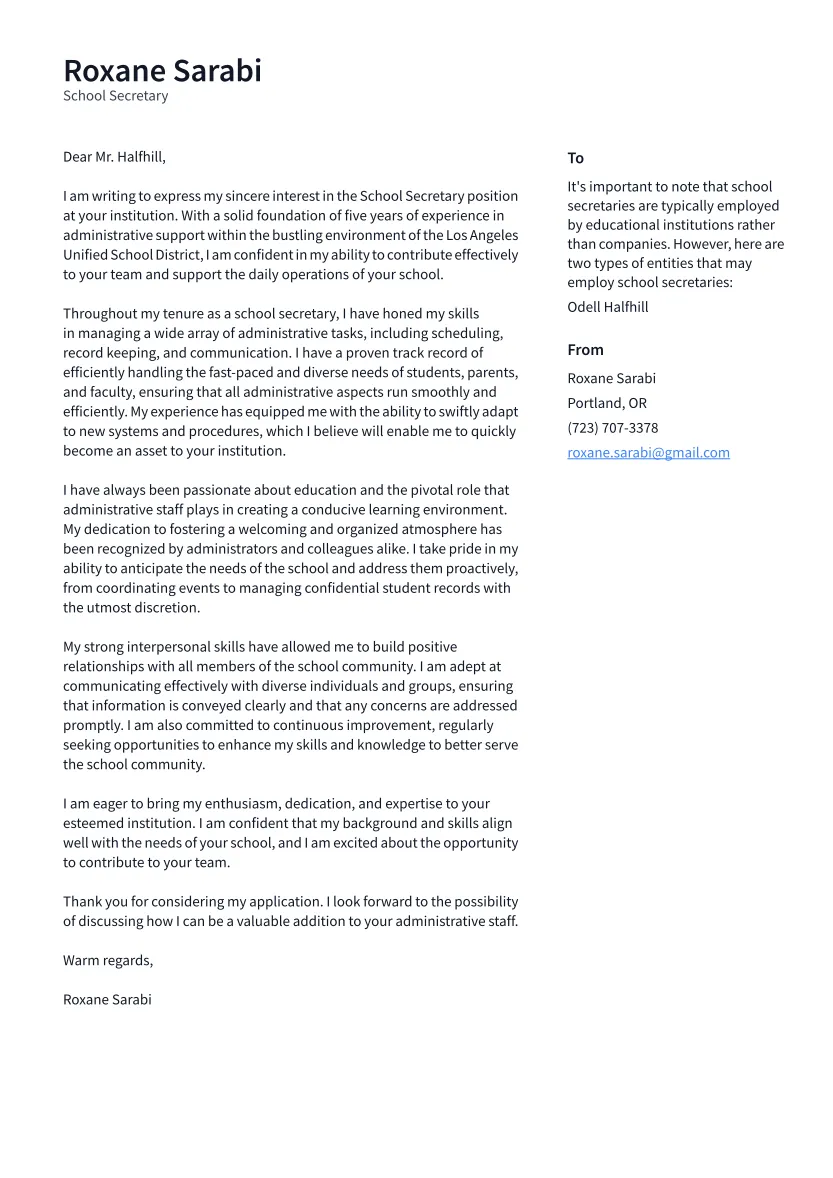
The opening paragraph is your opportunity to grab the reader’s attention. Clearly state the position you are applying for and how you learned about it. Briefly highlight your most relevant qualifications and express your enthusiasm for the role and the school. Avoid generic statements and instead, make your opening memorable and focused. Consider mentioning a particular aspect of the school or the job description that resonates with you. Make a strong statement that immediately shows your interest. You can show your excitement and how your past experiences make you the right candidate.
Developing Strong Body Paragraphs
The body paragraphs are where you showcase your skills and experience in detail. Divide your letter into several focused paragraphs, each addressing a specific aspect of the job description. Use the STAR method (Situation, Task, Action, Result) to provide concise examples of your accomplishments. Each paragraph should focus on a single idea or skill, demonstrating your value to the school. Use action verbs and quantify your achievements. Maintain a professional tone throughout, highlighting how your skills match the requirements. Back up your claims with solid evidence and clear explanations.
Creating a Powerful Closing
Your closing paragraph should reinforce your interest in the position and reiterate your key qualifications. Thank the reader for their time and consideration. State your availability for an interview and provide your contact information. End your letter with a professional closing, such as “Sincerely” or “Respectfully.” Reiterate your confidence in your ability to contribute to the school’s success. Proofread your closing paragraph carefully to ensure it is polished and error-free. Make sure you leave a lasting positive impression.
Proofreading and Polishing Your Letter
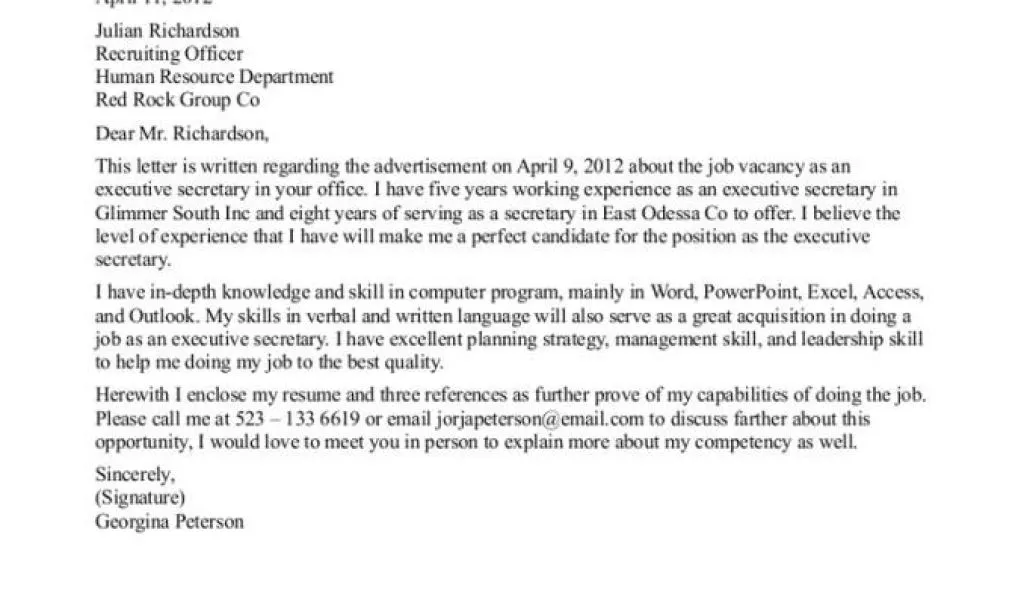
Before submitting your cover letter, carefully proofread it to catch any errors in grammar, spelling, or punctuation. Ensure that your letter is clear, concise, and easy to read. Errors can create a negative impression and undermine your qualifications. Read your letter aloud to check for awkward phrasing or sentence structure. Consider having a friend or family member proofread it as well. Even a small mistake can detract from the quality of your application. Polishing your letter demonstrates your attention to detail and commitment to presenting yourself professionally. Take the time to edit and revise it.
Checking for Grammar and Spelling Errors
Grammar and spelling errors can damage your credibility and make it appear as though you are not detail-oriented. Use a spell checker and grammar checker to identify and correct any mistakes. Read your letter aloud to catch any errors that the automated tools might miss. Pay close attention to commonly misspelled words, such as “there,” “their,” and “they’re.” Ensure correct punctuation, including commas, periods, and apostrophes. A flawless letter shows that you are professional, and you are the right candidate.
Ensuring a Professional Tone and Format
The tone and format of your cover letter should reflect professionalism. Use a formal and respectful tone throughout. Avoid slang, jargon, or overly casual language. Use a standard font, such as Times New Roman or Arial, in a size that is easy to read (usually 11 or 12 points). Ensure that your margins are consistent and that your letter is well-formatted. Follow all instructions. The format of your cover letter should complement the message. Make sure to use simple and clear language. Ensure your letter is visually appealing.
Finalizing and Submitting Your Cover Letter
Before submitting your cover letter, review the job posting to confirm the preferred method of application. If the posting requests a specific file format, make sure to use it. Always save your cover letter and resume as a PDF to preserve the formatting. Proofread your letter and resume one last time before submitting. Send your application promptly, following the application deadline. Make sure that you are sending your application to the right person. After submitting, consider sending a brief thank-you note to the hiring manager to reiterate your interest. By following these steps, you will maximize your chances of landing your dream job as a school secretary. Good luck!
